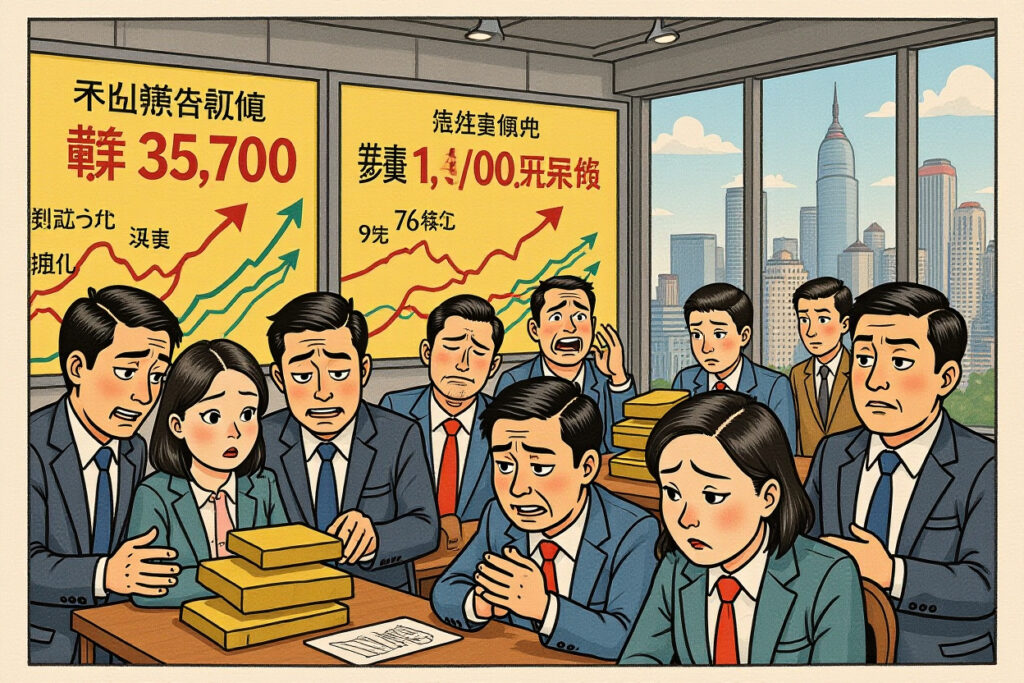Executive Summary
– Aoyang Health (澳洋健康) resumed trading with a dramatic “one-word” limit-up surge, reflecting strong market reaction to its ownership transition announcement.
– The company faces significant debt challenges, with a debt-to-asset ratio raising concerns among institutional investors.
– New controlling shareholders have presented ambitious performance commitments, adding both optimism and skepticism regarding future growth.
– Market analysts highlight regulatory scrutiny and execution risks as key factors influencing the stock’s medium-term trajectory.
Trading Resumption Sparks Investor Frenzy
Aoyang Health’s (澳洋健康) shares surged by the 10% daily limit immediately upon resumption of trading, marking a powerful market endorsement of the company’s announced ownership transfer. The “one-word”涨停 (limit-up) pattern demonstrated intense investor interest in the healthcare firm’s restructuring plans.
Trading volume reached unprecedented levels during the first hour of resumed trading, with over 50 million shares changing hands. This represented approximately 15% of the company’s total outstanding shares, indicating both speculative interest and strategic positioning by institutional investors.
Market Mechanics Behind the Surge
The limit-up movement occurred amid broader sector optimism toward healthcare stocks, particularly those undergoing ownership restructuring. Market makers maintained tight bid-ask spreads throughout the trading session, ensuring orderly price discovery despite the volatility.
Several large block trades appeared in the final hour of trading, suggesting institutional accumulation at elevated prices. The Shenzhen Stock Exchange (深圳证券交易所) issued no unusual activity alerts, indicating regulatory comfort with the price movement.
Ownership Transition Structure and Implications
The ownership transfer involves Jiangsu Aoyang Technology Industrial Group (江苏澳洋集团有限公司), the current controlling shareholder, transferring its 17.34% stake to a consortium led by Zhangzhou Fengwei District State-owned Capital Operation Group (漳州市峰伟区国有资本运营集团).
The transaction values Aoyang Health at approximately 3.2 billion yuan based on the transfer price of 3.85 yuan per share. This represents a 15% premium to the 30-day volume-weighted average price before trading suspension.
New Controlling Shareholder Background
Zhangzhou Fengwei District State-owned Capital Operation Group represents local government investment interests, bringing potential policy support and restructuring resources. The group has previously successfully restructured two similar healthcare companies in Fujian province.
The consortium includes three private equity firms specializing in healthcare turnarounds: Cedar Capital (杉树资本), Green Pine Capital (青松资本), and Summit Healthcare Partners (顶峰医疗合作伙伴). This combination of state-backed stability and private sector expertise appears well-received by market participants.
Debt Profile Analysis and Restructuring Challenges
Aoyang Health’s debt structure presents significant challenges for the new ownership group. The company reported a debt-to-asset ratio of 68.3% as of last quarter, substantially higher than the industry average of 42.1% for comparable healthcare companies.
Short-term debt obligations represent 45% of total liabilities, creating immediate liquidity pressures. The company faces 1.2 billion yuan in maturing obligations within the next 12 months, against current cash reserves of approximately 350 million yuan.
Debt Restructuring Initiatives
The new ownership group has announced plans to negotiate with creditors for maturity extensions on approximately 800 million yuan of short-term debt. Preliminary discussions with major creditors including Industrial and Commercial Bank of China (中国工商银行) and China Merchants Bank (招商银行) have reportedly shown positive early signals.
Asset disposal plans include selling non-core real estate holdings valued at approximately 450 million yuan on company books. Market valuations suggest these properties might fetch 380-420 million yuan in current market conditions.
Performance Commitments and Growth Projections
The incoming controlling shareholders have committed to achieving specific financial targets over the next three fiscal years. These commitments include revenue growth of 25% annually and net profit margins expanding from the current 3.2% to 8.5% by 2026.
The most ambitious target involves reducing the debt-to-asset ratio to below 50% within 24 months. This would require both substantial operational improvement and successful debt restructuring outcomes.
Execution Risks and Market Skepticism
Several analysts expressed concerns about the achievability of these targets given current market conditions. “The performance commitments appear optimistic given the company’s debt burden and competitive pressures in the healthcare sector,” noted Mingwei Li (李明伟), healthcare analyst at CICC (中金公司).
The company plans to achieve growth through expansion of high-margin medical services and reduction of lower-margin pharmaceutical distribution业务. This strategic shift requires significant capital investment despite the current debt constraints.
Regulatory Environment and Compliance Considerations
China Securities Regulatory Commission (中国证券监督管理委员会) guidelines on ownership changes require detailed disclosures of future plans and financial commitments. Aoyang Health’s filing appears to meet all requirements, though regulators may request additional information given the company’s financial position.
The healthcare sector remains subject to strict pricing regulations and policy changes, particularly under ongoing healthcare reform initiatives. Recent National Healthcare Security Administration (国家医疗保障局) policies on drug pricing could impact the company’s distribution business margins.
Corporate Governance Enhancements
The new ownership group has committed to appointing three independent directors with healthcare industry experience to strengthen oversight. The board will establish a special committee to monitor debt reduction and performance commitment achievement.
Shareholder voting on the ownership change is scheduled for next month, requiring approval from two-thirds of voting shareholders. Major institutional shareholders including China Asset Management (华夏基金) and Harvest Fund (嘉实基金) have indicated preliminary support.
Investment Implications and Sector Impact</h2
The Aoyang Health situation reflects broader trends in China's healthcare sector, where leveraged companies seek strategic investors for restructuring. Successful turnaround could establish a template for similar situations across the industry.
Healthcare sector valuations have remained depressed despite solid long-term growth prospects, creating potential opportunities for investors with strong risk tolerance. The ownership transition model involving local government-backed investors may emerge as a pattern for distressed companies.
Portfolio Strategy Considerations</h3
Institutional investors should monitor execution progress on debt reduction and operational targets. The high-risk, high-reward nature of this investment requires careful position sizing and ongoing due diligence.
Short-term trading opportunities may emerge around milestone announcements, though fundamental value realization likely requires 18-24 month horizon. Volatility should be expected throughout the restructuring process.
Strategic Outlook and Forward Guidance
Aoyang Health represents a compelling case study in Chinese corporate restructuring amid challenging financial conditions. The combination of state-backed stability and private sector expertise offers interesting potential, though execution risks remain substantial.
Investors should monitor quarterly progress on debt reduction and margin improvement targets. Successful achievement of initial milestones could significantly rerating the stock, while misses could trigger renewed selling pressure.
The healthcare sector’s defensive characteristics provide some downside protection, though company-specific factors dominate the investment thesis here. Careful risk management and ongoing monitoring remain essential for investors considering position establishment.
Market participants should review the company’s detailed filings with stock exchanges and regulatory bodies before making investment decisions. Professional advice tailored to individual risk tolerance and investment objectives is strongly recommended when considering investments in complex restructuring situations.



